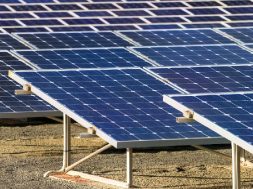
There is no such thing as free electricity: RK Singh
R.K. Singh, minister of power, new and renewable energy, pitches for direct benefit transfer for better targeting of electricity subsidies
New Delhi: Unveiling the road map for structural reforms in the power sector, power and new and renewable energy minister Raj Kumar Singh on Thursday pitched for leveraging the direct benefits transfer (DBT) scheme in the electricity sector for better targeting of subsidies. He asked the states to bear the subsidy component.
Singh’s pitch comes in the backdrop of India running the world’s largest direct benefits transfer programme resulting in savings to the government exchequer. Some of the schemes where DBT has been implemented for cash transfers include; domestic cooking gas subsidy, scholarships, Mahatma Gandhi National Rural Employment Guarantee Scheme and pensions.
At a conference organized by the lobby group Associated Chambers of Commerce and Industry of India (Assocham), Singh also spoke about holding a meeting of state energy ministers on 10 and 11 November to help expedite the legal provisions to boost electricity demand, promote retail competition and rationalize tariff slabs to drive manufacturing.
“You want to meet subsidies for these sectors, you do it through the direct benefit transfer. As far as electricity is concerned, it needs to be metered and bills need to be raised and bills need to be paid. And whatever subsidy you want to give to any category of consumer, you give it through the direct benefit transfer, so that the efficiencies or inefficiencies of discoms are clear,” said Singh while inaugurating Assocham Global Investors’ India Forum.
In November 2015, the NDA government approved Ujjwal Discom Assurance Yojana (UDAY), a turnaround scheme to improve operational and bill collection efficiency of power distribution companies (discoms).
“There is no such thing as free electricity. You want electricity, you have to pay for it. You want to subsidise the farmer? Fine, subsidise the farmer. So instead of farmer, you have to pay. And that is something which I have been pressing and that’s a major requirement,” Singh added.
The government’s policy think-tank NITI Aayog has also pitched for DBT in the electricity sector in its draft national energy policy.
“Because if we won’t do that, if we don’t recover the price of electricity we distribute, then five years down the line, discoms will be dead again…So that is something which is occupying us and I tend to carry the states along with this. So, that is again something that I will be discussing on the 10th and 11th with the states,” Singh said.
The legal route planned for power sector reforms includes enforcement of signed power purchase agreements (PPAs), making it mandatory for a discom to have PPAs to cover 100% of the annual average demand, penalties in the event of electricity generators’ dues not being cleared in time and statutory renewable purchase obligations.
This comes at a time when states are reneging on their off-take commitments for projects. Also, with states unwilling to buy electricity, no new PPAs are being inked, contributing to the uncertain outlook for the Indian power sector.
The other radical changes are to separate the so-called carriage and content operations of existing discoms, which was earlier proposed by the United Progressive Alliance government. The separation will allow consumers in India to buy electricity from a power company of their choice.
“We are going to change the law,” Singh said.
These steps will require amendments in the Electricity Act of 2003. The government plans to move the legislative changes in the next session of the Parliament.
“We are going to make certain that the payments of bills are on time by going for smart metering and prepaid metering. And we are also going to push for wherever feasible, privatisation. We are going to separate carriage and content. That is again something, which is going to happen,” Singh said.
The government’s strategy is aimed at improving India’s per capita power consumption of 1100 kilowatt hour (kWh) which is among the lowest in the world. In comparison, China has a per capita consumption of around 4,000 kWh, with developed nations averaging around 15,000kWh per capita.
“Next amendment will see that happen. And we will bring more competition in distribution, which will bring more efficiency. So, this is the trajectory which I have in mind,” Singh added.
This comes at a time when the centre and states are working for electricity tariff slab rationalization to make them uniform across the country. This will help in reduction of cross-subsidies borne by the industry, and make tariffs more competitive for businesses thereby pushing the government’s Make in India drive.
“So, it cannot be that the lowest tariff is, let’s say, Rs1.5 per unit and the highest tariff is Rs7 per unit. It can’t be. We will agree on a band, may be 20%-25% but that’s it. Because until and unless you make the tariff for industry also competitive, our industry can’t grow,” Singh said.
Singh also questioned the intentions of non-governmental organizations opposing hydropower projects. He also said that the new hydropower policy will be taken up for the cabinet’s approval to address the problems faced by India’s hydropower sector.














